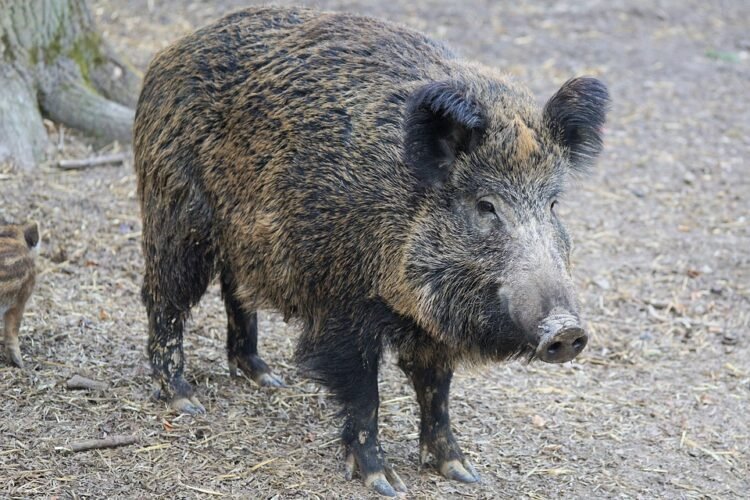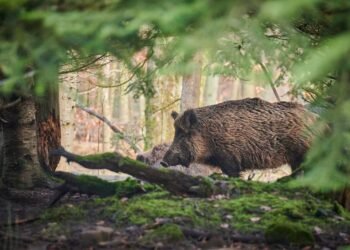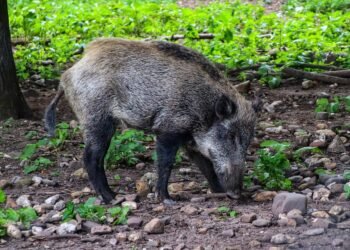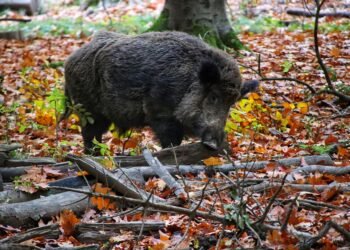Survival Instincts: Defending Against Wild Boar Attacks
Wild boars are powerful and aggressive animals that can pose a threat to humans when encountered in the wild. Knowing how to defend yourself against a wild boar attack is crucial for survival. In this article, we will discuss survival instincts and strategies to protect yourself from wild boar attacks.
Understanding Wild Boars
Wild boars, also known as feral pigs or wild pigs, are large, omnivorous mammals that are native to Europe, Asia, and North Africa. They are known for their sharp tusks, powerful jaws, and aggressive behavior when threatened or cornered.
Wild boars are opportunistic feeders and will eat a variety of foods, including plants, insects, small animals, and even carrion. They are known to be highly adaptable and can thrive in a wide range of habitats, from forests to grasslands to urban areas.
Common Questions About Wild Boar Attacks
1. What provokes a wild boar attack?
Wild boars are typically shy and reclusive animals that will avoid humans if possible. However, they can become aggressive if they feel threatened, cornered, or if their young are in danger. Sows with piglets are especially protective and may charge at perceived threats.
2. How can you tell if a wild boar is about to attack?
Wild boars may exhibit warning signs before attacking, such as pawing at the ground, snorting, or making loud grunting noises. They may also raise their hackles, flatten their ears, and bare their teeth as a sign of aggression. If you encounter a wild boar displaying these behaviors, it is important to back away slowly and avoid direct eye contact.
Survival Instincts: Defending Against Wild Boar Attacks
1. Stay calm and avoid sudden movements
When encountering a wild boar, it is important to remain calm and avoid sudden movements that may startle or provoke the animal. Stand your ground and try to make yourself appear larger by raising your arms or holding a jacket above your head.
2. Back away slowly and avoid direct eye contact
If a wild boar approaches you, back away slowly while facing the animal. Avoid running or turning your back on the boar, as this may trigger a chase response. Maintain a safe distance and avoid making direct eye contact, as this can be seen as a challenge by the boar.
3. Use a stick or other object as a barrier
If a wild boar charges at you, use a stick, backpack, or other object as a barrier between you and the animal. This can help deflect the boar’s charge and give you time to retreat to safety. Avoid using weapons or trying to physically harm the boar, as this may escalate the situation.
4. Climb a tree or seek higher ground
If a wild boar continues to pursue you, seek higher ground by climbing a tree or a rock. Wild boars are powerful animals but are not adept climbers, so seeking higher ground can help you escape from their reach. Once you are in a safe position, wait for the boar to lose interest and move away.
Conclusion
Surviving a wild boar attack requires quick thinking, calmness, and the ability to assess the situation accurately. By understanding wild boar behavior and knowing how to defend yourself against an attack, you can increase your chances of survival in the wild. Remember to stay calm, back away slowly, and use barriers to protect yourself from aggressive wild boars.
With these survival instincts and strategies in mind, you can confidently navigate the outdoors and enjoy nature without fear of wild boar attacks. Stay safe and be prepared for any encounter with these powerful animals.
Remember, knowledge is power, and being informed about wild boar behavior can help you stay safe in the wild. By following these tips and strategies, you can defend yourself against wild boar attacks and emerge unscathed from any encounter with these formidable creatures.







